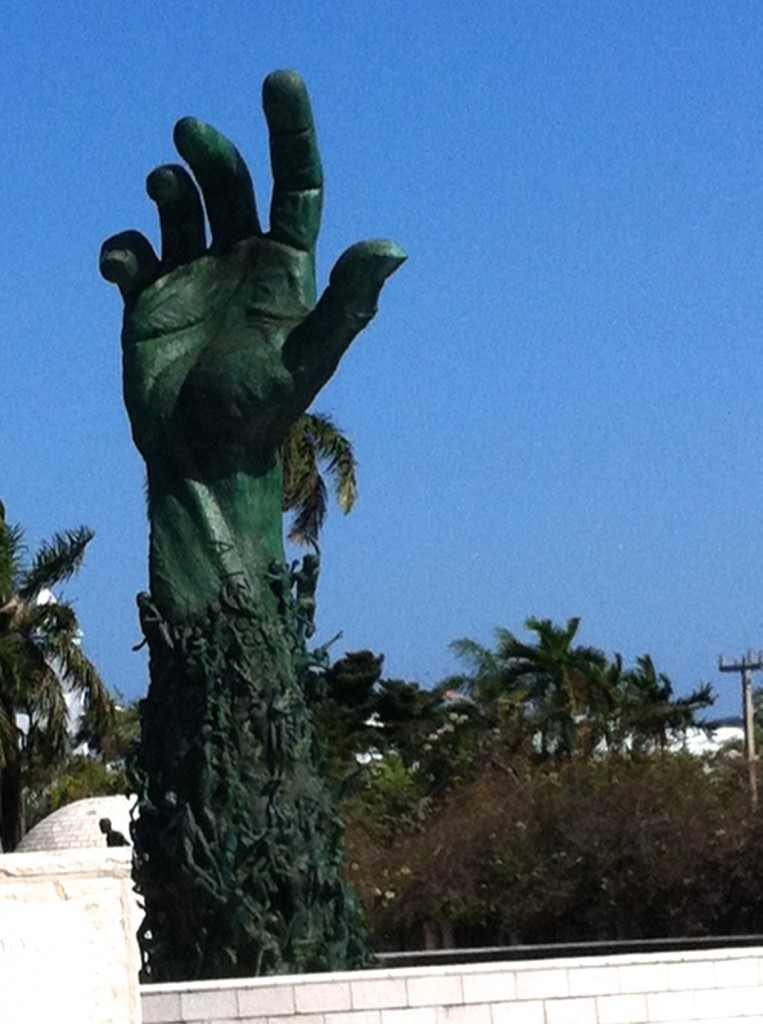Lenten Lights GG ~ Remembrance
Searching my cache of photos for palms and Palm Sunday, I came across this picture of the Holocaust Memorial of Miami, taken while on Spring Break trip last year.
 There are indeed palms, but they pale in the shadow of this memorial, a hand reaching up in profound struggle, “conveying the unimaginable and remembering the unthinkable.” Sculptor, Kenneth Treister says, “The immensity of this tragedy is infinite. To express it artistically, impossible … but I had to try.”
There are indeed palms, but they pale in the shadow of this memorial, a hand reaching up in profound struggle, “conveying the unimaginable and remembering the unthinkable.” Sculptor, Kenneth Treister says, “The immensity of this tragedy is infinite. To express it artistically, impossible … but I had to try.”
Tomorrow is Palm Sunday. Christians will begin the remembrance of the final week of Jesus’ life and ministry, a triumphal entry to Jerusalem, core teachings of the faith, followed by his arrest, trial and crucifixion. At the heart of Christian faith is a profound wound. It must be remembered. And the remembering is complicated by the seemingly impossible and conflicting need not to valorize or glorify the suffering, pain and death, neither to forget the painful presence of violence in the story. If we find an easy answer or pathway through this tension, it is probably not much of an answer.
Monday evening begins Passover or Pesach. Jews will begin the remembrance of the Exodus out of Egypt, the key teachings of their faith, and many other times of profound suffering over the course of history for the children of Israel, including the Holocaust during the second World War. At the heart of Jewish faith are wounds so numerous and profound, as to be “infinite” as Treister says. There is no glory in this suffering, yet remembrance is absolutely key, so much that when Jews in America respond to questions about which central aspects of the Jewish experience shape their political activities, remembering the Holocaust tops their list.
If you can do nothing else with Holy Week or with Passover, then at very minimum, I urge you to remember, and ponder with some seriousness, the wounds at the heart of Christianity and Judaism. How religious traditions and people cope with violence – their own and that of others – remains one of the greatest challenges of our time. We ignore this challenge to our own peril. The vision of Christian hope and of Jewish tikkun olam (healing the world) are based not in casual or grandiose optimism. Rather sacred hope and healing are grounded in the most profound vulnerabilities of life and death.



